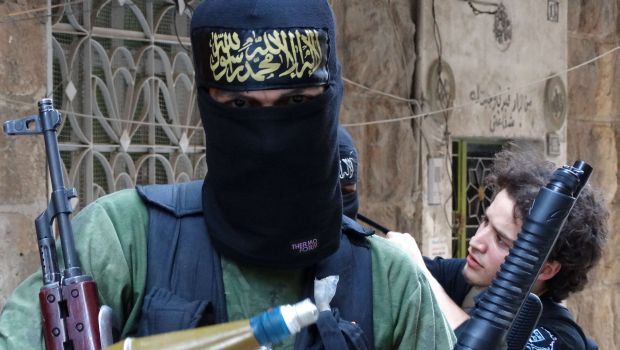The Syrian scene is witnessing significant transformations that are changing the nature of the battle raging there. This is not only because of the new armed forces joining the ones that have been fighting for more than 30 months, but also due to the new agendas that do not mesh with the ideological, intellectual and political ones Syria has grown accustomed to throughout this long struggle.
At this point in time, the Free Syrian Army (FSA) is being forced out of the areas it took from the regime. With this in mind, it is possible to say that if the area extending from the Iraqi borders to the eastern part of the Syrian coast through Idlib falls into the hands of the Islamic State in Iraq and Syria (ISIS), the nature of the revolution will change. As a result, the revolution will be limited to isolated enclaves in Idlib and Hama—the situation in both is almost normal—as well as Homs. As for Damascus, the regime succeeded in separating the city from its two Ghouta districts where it continues to murder people daily whether by artillery, rocket launchers, warplanes, or by letting its people perish out of hunger and thirst. Finally, in Deraa, the regime established a strong defense line to separate the battles in Hauran and reduce their effect on the battle of Damascus.
These developments threaten to split Syria into two areas that, although one is ultra-nationalist and the other religious, are different in appearance yet similar in essence given the tyranny they are subjected to. They also threaten to fragment and tear apart the FSA and the entire civil and democratic uprising, minimizing their role in the revolution, especially if my fears of the receding influence of the FSA prove to be accurate.
Moreover, there are two worrisome phenomena in Syria: First, the media campaign targeting the Syrian National Coalition, damaging its reputation and accusing it of being a sell-out regarding its attitude towards Geneva II. Secondly, the creation of a military alliance under the name of the “Islamist Army,” with which Islamist organizations intend to replace the “National Army” or render it superfluous. In fact, Islamists consider the National Army as taking on a character contradictory to their own, believing that its existence will inevitably lead to an armed conflict between themselves and other revolutionaries. This sentiment has been echoed by the some members of the SNC, when I proposed that the legal committee prepare a decree forming the National Army.
Are we heading towards a situation where there are three anti-FSA—or anti-National Army—forces active in Syria? These forces are the regime, foreign jihadists, and the proposed Islamist Army.
Since the announcement of its inception, the Islamist army gave the impression that it aimed at blocking the formation of the National Army. On the other hand, many voices from within the FSA—which will form the core of the National Army—denied the legitimacy of its current leadership. This is not to mention the other voices denying in turn the legitimacy of any measures proposed, accusing a wide range of the SNC members of treason. These very voices take an extremely strict attitude towards the interim government, as well as rallying their supporters against it.
With these developments, the Syria political arena enters a new stage where neither the people who ignited the revolution nor those who have sacrificed their lives—whether from the civil and democratic forces or the FSA—in defense of Syrians and their values will have any role. Instead, there will be jihadist organizations that, together with their supporters, will be necessary for the survival of Bashar Al-Assad regime.
In fact, Assad’s regime has planned since the eruption of the revolution to establish organization that claim to want to replace him but in fact have not done anything apart from forcing the FSA out of the areas it liberated. The real function of these groups is to intimidate the world into accepting the survival of the Assad regime.
This scenario is not a product of my imagination. It has been implemented for months across our homeland, posing existential challenges to our people and the forces demanding freedom, justice, equality and the preservation of the unity of the state and society. Today, Syrians are threatened with a future more dangerous than anything they have ever faced.
